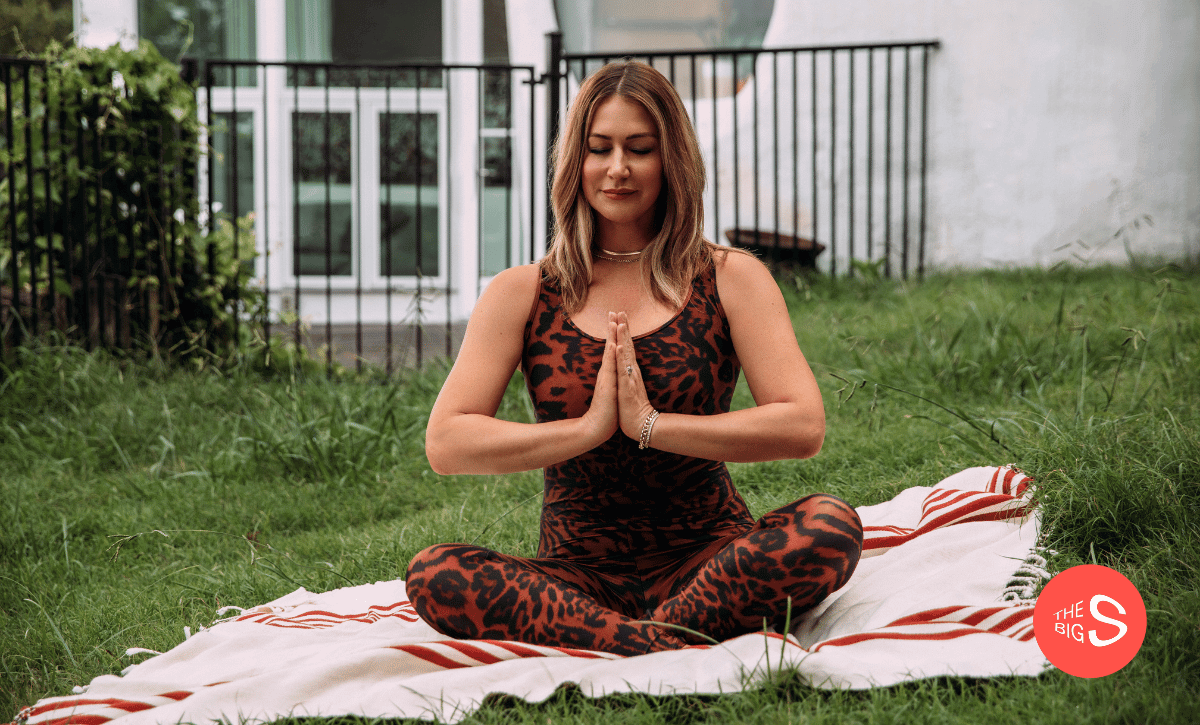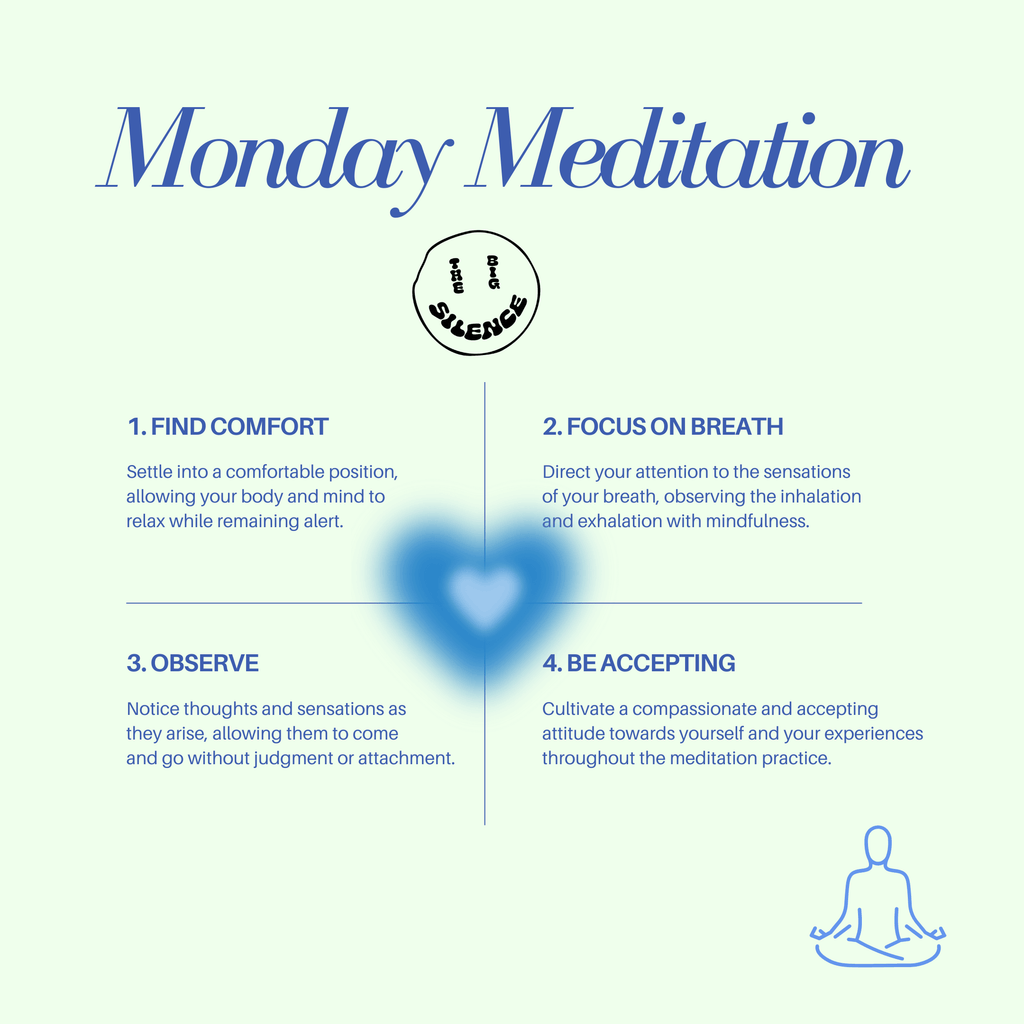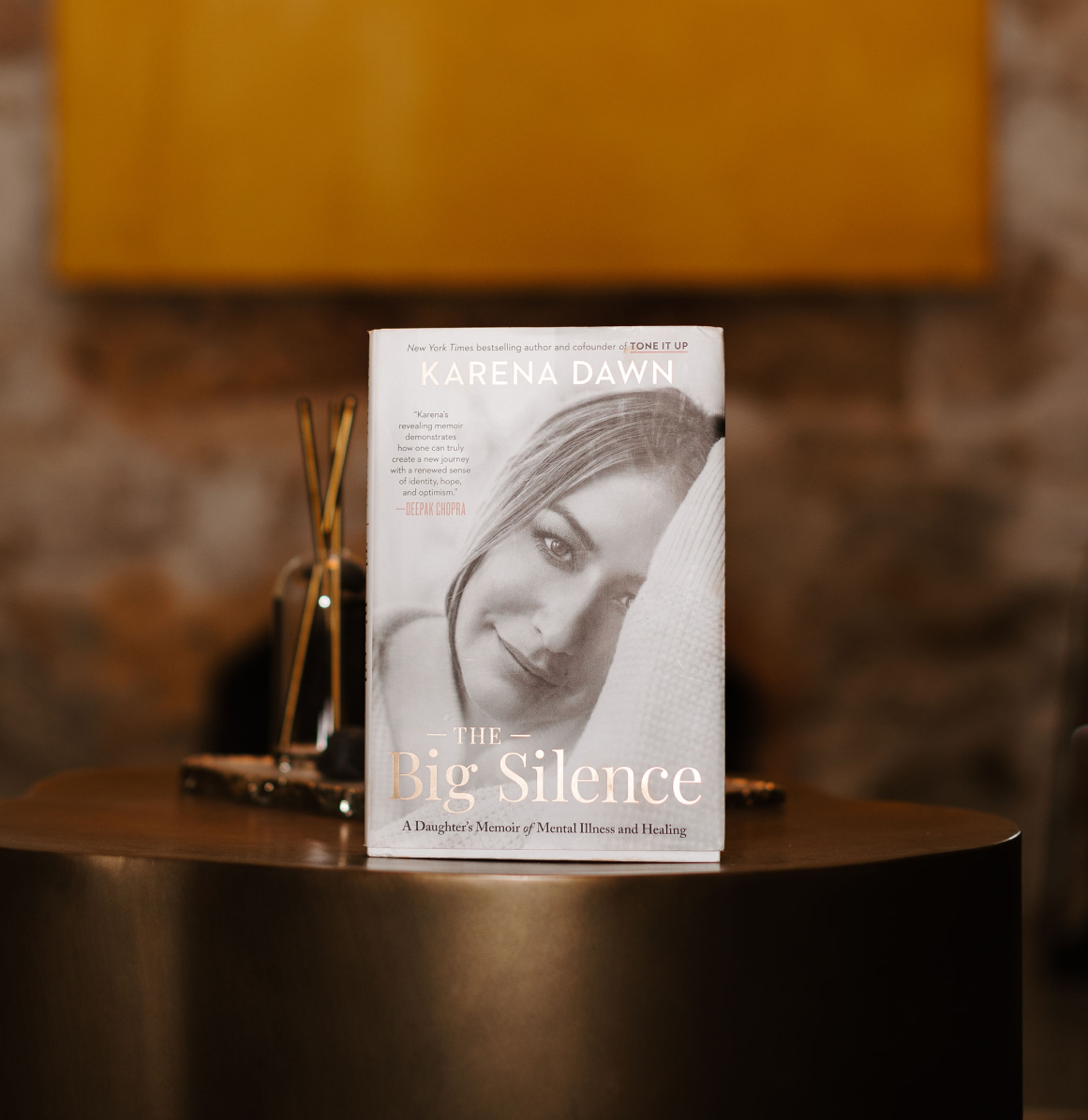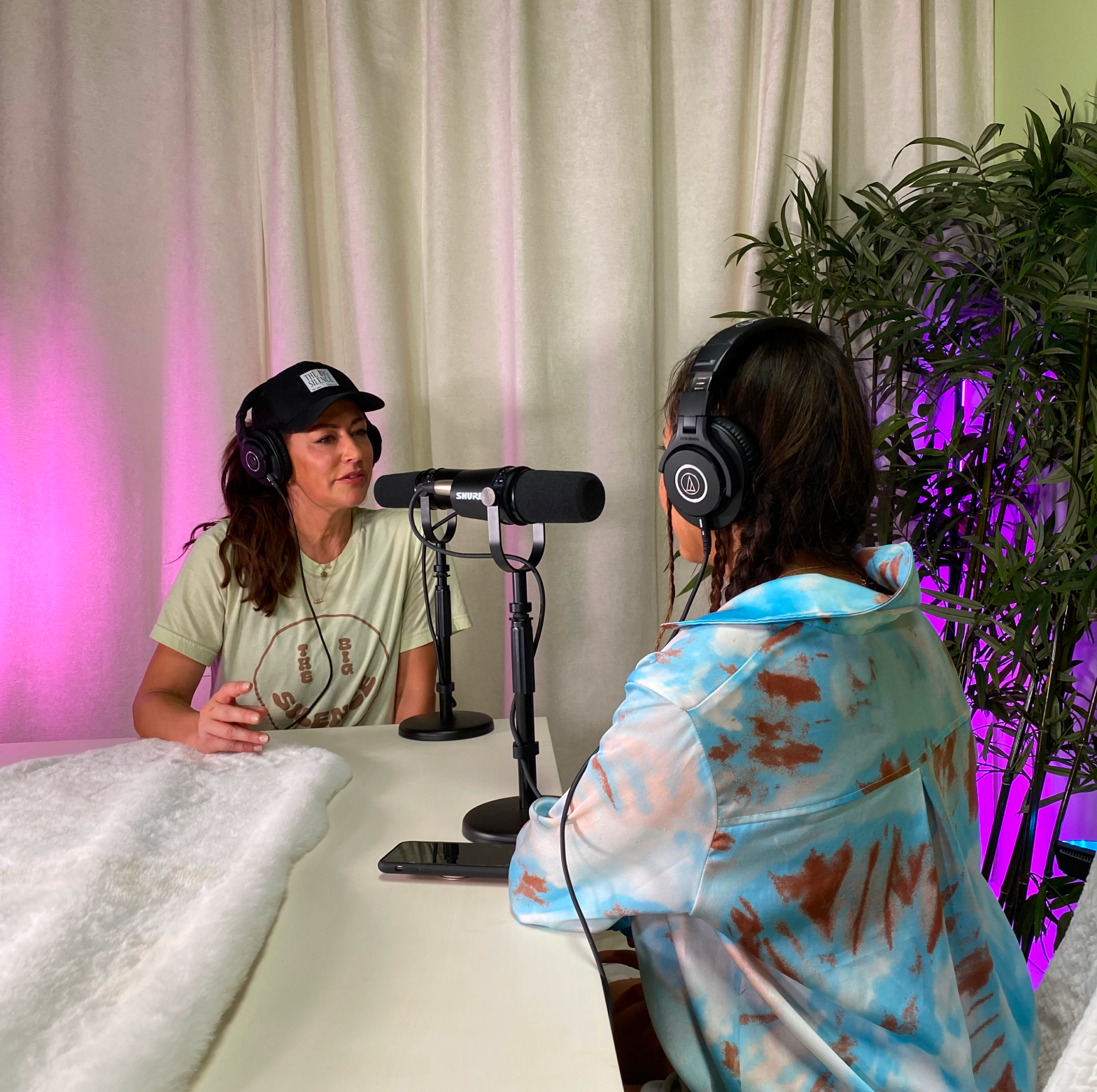
Welcome back to Big Feels Monday, a weekly series by The Big Silence where we talk about how we’re feeling, and bring up tools and inspiration to help start the week off.
Let's Talk about Anxiety
Today, Karena Dawn and James Nicholas Kinney are talking about anxiety. Each shares their personal journey of learning how to recognize anxiety and regain control. They discuss the symptoms of anxiety, how it feels in the body, how to recognize a panic attack, and steps your can take if you feel anxiety is coming on strong and interrupting your ability to function. Watch the video and then read below for tips in this week's mental health toolkit.
What is Healthy Anxiety VS Unhealthy Anxiety
According to the Anxiety & Depression Association of America anxiety disorders are the most common mental illness in the U.S. affecting more than 40 million adults 18+ (19.1% of the population) per year.
"There is a normal version of anxiety which is healthy, and then there's the kind that feels out of our control and feels like it's hurting us,"says Dr. Julia Britz on The Big Silence podcast episode Thoughts Can't Kill: Understanding the Roots of Anxiety "Healthy anxiety is the stuff that keeps you safe, like when you're about to hit a car and you slam on the brakes really hard. That's good because that's keeping you out of danger."
When anxiety becomes unhealthy is when it leads to a subconscious thought or belief that makes you think you are in danger all the time. "Everything becomes a source of threat to you. You're like: I don't want to look at my my bank account right now, and I'm afraid to talk to my boyfriend, because I don't want to get into a fight," says Dr. Britz. Unhealthy anxiety leads to a place of avoidance, and that also then increases the threat level. "Unhealthy anxiety is actually not protecting you. Your brain is trying to protect you in its own way, but unfortunately it's just taken a left turn doing that."
What Are the Physical Symptoms of Unhealthy Anxiety?
"Anxiety is going to lead to dysregulated eating patterns, like eating too much or not eating enough. It's going to lead to poor sleep, so not being able to sleep, or waking up four in the morning, having vivid dreams or nightmares. It's going to cause elevations in your stress hormones which we know to directly be linked to acne," says Britz.
Tips for Balancing Your Relationship to Anxiety
For people who are just starting to wonder if they have an unhealthy relationship with anxiety and find anxiety is interfering with their life, Dr. Britz offers these tips:
- Talk to somebody that you trust, and it can be anybody who you feel safe sharing with about how you are feeling and what you are experiencing.
- Talk to a therapist to help understand your anxiety.
- If therapy isn't doable, try a therapy notebook like, Get Out of Your Mind and Into Your Life: The New Acceptance and Commitment Therapy by Steven Hayes or Love Yourself, Heal Your Life Workbook by Louise Hay.
- Try free-writing to get a sense of what is stirring up in you.
How to Challenge Your Fear, and Decrease Anxiety
“Anxiety increases when there is any fear, perceived threat, or the fear of the unknown, which has been extremely common for individuals to feel these past couple of years,” says licensed clinical social worker Morgan Winder, in Struggling with Anxiety? 5 Tools to Have in Your Toolkit.
We spoke with Monica Berg, author of Fear is Not a Option, to get her advice on how to take fear out of the driver's seat. She explains that:
"Fear stops you from being curious, from exploring, from taking risks, because what will happen? If that's where you live your life, then also you're not going to experience much joy. Because we are curious by nature. We are meant to seek. We are meant to learn. We're meant to grow. So, you have to be able to curb your fear, as much as you are able. Ask yourself: how much energy are you giving into the fear? How much are you listening to it? How much do you let it stop you and really take a toll?"
Berg explains that if you live in a state driven by fear, then what you are really losing is your potential. She says, "If you allow fear to be in the driver's seat then fear is all-consuming, and your potential is not being nurtured...We don't know who we could become and as long as fear is there." So how do you overcome the fear? She says it's best to start gradually, to learn to curb your fear rather than fight it, "Decide that ‘Today, I'm going to do one thing that scares me. I'm going to do one thing in the direction of what inspires me.’ And that's how you really train yourself to live on different terms."
Karena's Favorite Tools for Calming Anxiety

Meditation is a simple and fast way to help free your mind from anxiety and worry. Meditation entails focusing your mind on a mantra, an object, and image, or even your breath and physical sensations. Karena has a vast library of meditations for mind, body, and mood available through Tone It Up.
Using the breath adds an even more potent way to relax the nervous system and calm anxiety. Using your voice and breath can create a healthy immune system response that relieves anxiety. Recently Maryn Azoff shared with Karena one of her best breathing practices to help deal with anxiety:
BIG FEELS FEEDBACK
How are you really feeling? We'd love to hear about your week, or share your favorite tools for the week in the comments!
|
The Big Silence Foundation, Inc is a U.S. tax-exempt 501(c)(3) organization dedicated to changing the culture of mental health. Consistent with IRS guidelines, all gifts are tax-deductible to the extent allowable by law. Donate to bring change with us!
|
Start a conversation in your The Big Silence apparel.
The information provided is for educational purposes only, and does not substitute for professional medical advice. Users are advised to consult a medical professional or healthcare provider if they're seeking medical advice, diagnoses, or treatment.
**Please note that if your thoughts start becoming hopeless or suicidal, contact emergency at 988 or 911 and crisis services immediately. You can find more resources here. Text HELLO to 741741 to be connected with a trained crisis counselor.










